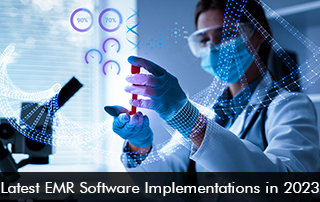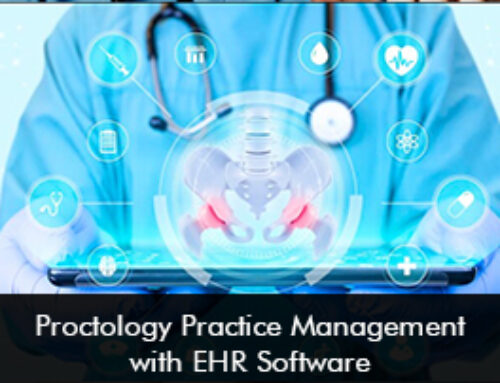In the year 2023, we have seen many healthcare organizations and hospitals in the United States that have implemented Electronic Medical Records (EMR) Software or transitioned to a new EHR system. Healthcare providers can greatly increase productivity, lower errors, and improve patient care coordination by switching from paper-based records to electronic records. The robust technology supports improved collaboration and interoperability by enabling smooth information sharing between various healthcare organizations.
In this blog post, we will look at the most recent EHR Software implementations and see how they will benefit patients, providers, and other stakeholders involved in the care process.
NextGen Healthcare EMR Software Tapped by Athletico Physical Therapy
Orthopedic rehabilitation provider, Athletico Physical Therapy based in Oak Brook has decided to expand its partnership with EMR Software vendor NextGen Healthcare. The physical therapy organization has decided to enlarge its operations and hence has implemented Practice Management solutions and an Electronic Health Records system from NextGen to support growth goals.
In February 2022, Athletico Physical Therapy acquired Pivot Health Solutions and as a result, expanded its footprint in the Eastern United States. The combined healthcare organization has more than 9000 staff members across 900 locations. NextGen EMR Software will be leveraged to optimize clinical, and financial workflows. Athletico Physical Therapy has already realized a boost in revenue stream with NextGen Healthcare.
Community-Based Hospital Taps MEDITECH EHR Software System
An independent community-based hospital in Texas, Citizens Medical Center is implementing MEDTECH Expanse Software solutions to improve care delivery.
The hospital has partnered with the CareCloud EMR Software vendor to lead the EHR implementation process smoothly.
The collaboration between MEDITECH Software and the CareCloud implementation partner will enable Citizens Medical Center to unleash great benefits for both patients and providers by unifying health records in all care settings. When care teams have access to accurate, and complete patient records in emergency, acute, and ambulatory settings they will be more empowered to offer patient-centered care which is vital to improving health outcomes.
EMR Software System Adoption
There has been an increase in EHR Software adoption rates in the US this year. The United States government has provided financial incentives to healthcare providers who demonstrate “meaningful use” of authorized EMR technology through initiatives such as the Health Information Technology for Economic and Clinical Health (HITECH) Act. These Medicare and Medicaid incentives have pushed healthcare organizations to invest in and implement EMR systems.
Furthermore, health systems know that for improved efficiency, better patient safety, and strong interoperability options they require Electronic Medical Records Software technology.







